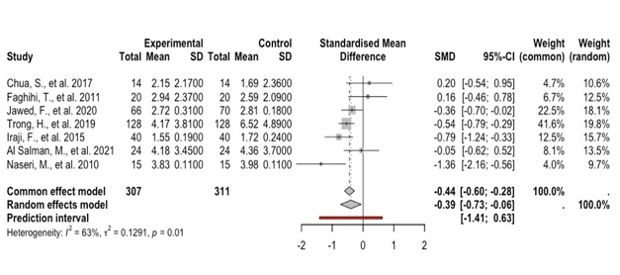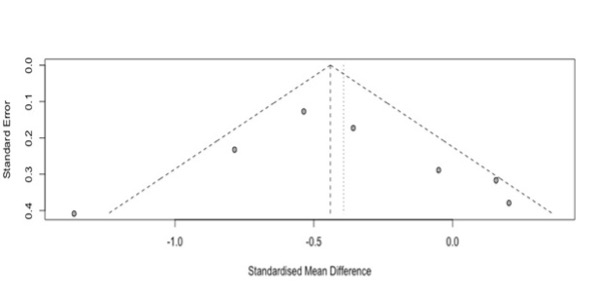Session Information
Session Type: Poster Session B
Session Time: 10:30AM-12:30PM
Background/Purpose: Psoriasis is a chronic inflammatory skin disorder that is associated with an increased risk of cardiovascular diseases. Chronic inflammation in psoriasis can produce excessive reactive oxygen species (ROS) by releasing proteolytic enzymes and myeloperoxidase from leukocytes, leading to oxidative stress. These ROS oxidize low-density lipoproteins (LDLs) in the epidermis, resulting in cell damage and psoriatic plaques. Statins, known for their cholesterol-lowering effects, also possess immunomodulatory properties that can diminish inflammation in psoriasis. By increasing LDL clearance and reducing cardiovascular risk, statins may improve the clinical course of psoriasis and alleviate its symptoms.
Methods: Following PRISMA guidelines, a systematic review of data from PubMed, Cochrane, Web of Science, Scopus, EMBASE, and CINAHL was conducted on 18/03/2024. Randomized clinical trials (RCTs) comparing statins with placebo or alternative treatments in adult patients with psoriasis were included. The primary outcome was the Psoriasis Area and Severity Index (PASI) score or symptom improvement. Secondary outcomes included identifying any statin that could impact PASI and any potential effect of concomitant topical ointments.
Results: Of 10,172 identified articles, 12 RCTs were included, involving 1,000 participants. Exclusion factors included patients under 18 years, articles non in Spanish or English, and interventions other than statins. By meta-analysis, we identified statistically significant differences in psoriasis severity between statin and placebo groups [SMD -0.39; 95%CI: -0.73, -0.06; P = 0.0206]. Subgroup analyses based on the type of statin and concomitant use of topical ointments demonstrated no significant differences. Sensitivity analysis suggested potential heterogeneity, and post-hoc analysis resulted in a narrower range of effect sizes.
Conclusion: Significant improvements in psoriasis severity may occur with statin use relative to placebo. Heterogeneity among studies and limitations in study design highlight the need for further well-designed RCTs to elucidate the role of statins in psoriasis management. However, these findings offer insights into potential therapeutic paths warranting exploration in future research studies. Systematic review registration number: PROSPERO registry— CRD42024525998
To cite this abstract in AMA style:
Abreu Lopez B, Calderon Martinez E, Siu Xiao T, Sosa Carcamo Z, Aleman Reyes A, Bonilla Bonilla F, Murillo Pineda M, Sanabria Herrera E, Ayala Aguilar A, Del Valle Rojas Marron A, Contreras Duran, V, Lopez Romero K, Garzon M. A Meta-Analysis of Statin Efficacy in Controlling Disease Activity in Psoriasis [abstract]. Arthritis Rheumatol. 2024; 76 (suppl 9). https://acrabstracts.org/abstract/a-meta-analysis-of-statin-efficacy-in-controlling-disease-activity-in-psoriasis/. Accessed .« Back to ACR Convergence 2024
ACR Meeting Abstracts - https://acrabstracts.org/abstract/a-meta-analysis-of-statin-efficacy-in-controlling-disease-activity-in-psoriasis/


